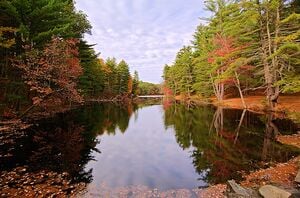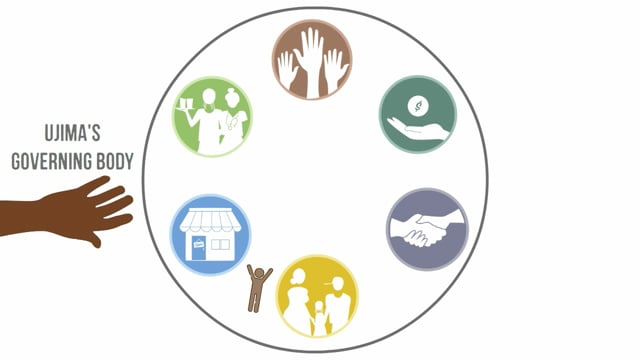The aim of this page is to recognise, celebrate and encourage the self-empowerment of community action networks (CANs) and community groups across Massachusetts.

 Massachusetts Just Took a Big Step Away from Natural Gas. Which States Might Follow?, insideclimatenews.org (Dec 07, 2023)
Massachusetts Just Took a Big Step Away from Natural Gas. Which States Might Follow?, insideclimatenews.org (Dec 07, 2023)  More Massachusetts cities seek to ban gas, citing lack of diversity in pilot and urgency of climate crisis, energynews.us (Aug 03, 2023)
More Massachusetts cities seek to ban gas, citing lack of diversity in pilot and urgency of climate crisis, energynews.us (Aug 03, 2023)  Food forests are bringing shade and sustenance to US cities, one parcel of land at a time, The Conversation (Apr 04, 2023)
Food forests are bringing shade and sustenance to US cities, one parcel of land at a time, The Conversation (Apr 04, 2023)
Networks and sustainability initiatives[edit | edit source]
- Environment Massachusetts, statewide, citizen-supported environmental advocacy organization, working towards a cleaner, greener, healthier future.
- Sustainable South Shore
Community involvement[edit | edit source]
Dudley Street Neighborhood Initiative, nonprofit, community-run organization based in Roxbury, Massachusetts. It was founded in 1984 by residents of the Dudley Street Neighborhood, along with members of the Riley Foundation, as an effort to rebuild the poverty-stricken community surrounding Dudley Square. It is known as the first community-run grassroots organization to gain "the power of eminent domain" by the Boston Redevelopment Authority, meaning the community controls its own development and the use of the land. W
Via the Dudley Street Neighborhood Initiative, residents worked with city and state officials to transfer ownership of 15 acres to a Community land trust (CLT), in which 1,300 parcels of land were placed. Now, those lots boast 225 new affordable homes, a 10,000-square-foot greenhouse, urban farm, playground, gardens, and other amenities one would only expect in more privileged, resource-rich neighborhoods.[1]
Climate action[edit | edit source]
350 Massachusetts - Greenovate Boston, community-driven movement to get Bostonians involved in reducing the city's greenhouse gas emissions 25% by 2020 and 80% by 2050
Climate change in Massachusetts affects both urban and rural environments, including forestry, fisheries, agriculture, and coastal development. The Northeast is projected to warm faster than global average temperatures; by 2035, the Northeast is "projected to be more than 3.6°F (2°C) warmer on average than during the preindustrial era."
Biodiversity[edit | edit source]
Wikipedia: Massachusetts, Ecology
Environment quality[edit | edit source]
Mystic River Watershed association - wikipedia:Pollution on Cape Cod
Open spaces[edit | edit source]
Department of Conservation and Recreation (mass.gov) - Greater Worcester Land Trust - Kestrel Land Trust - Mount Grace Land Conservation Trust - Mystic River Reservation - Sudbury Valley Trustees
Community energy[edit | edit source]
Brewster Community Solar Garden - Resonant Energy, Dorchester, Boston
The U.S. state of Massachusetts has vast wind energy resources offshore, as well as significant resources onshore. The 2016 update to the states's Clean Energy and Climate Plan had a goal of reducing 1990 baseline greenhouse gas emissions levels by 25% by 2020. Current goals include installing 3,500 megawatts (MW) of offshore wind power in the state by 2035. However, as of Q4 2021 the state had only 120 MW of wind powered electricity generating capacity, responsible for generating 0.9% of in-state electricity production. The state has awarded contracts to two offshore projects, the 800 MW Vineyard Wind project and 804 MW Mayflower Wind project. Construction began on the Vineyard Wind 1 project on November 18, 2021, after a long fight for approval.Commonwealth Wind was selected for development in 2021, but the developer has attempted to cancel the project due to increased costs. There are eight projects planned for off the southern coast of Massachusetts, though some will deliver power to Rhode Island, Connecticut, and New York.
Wikipedia: Solar power in Massachusetts
Cycling activism[edit | edit source]
Hubway bike sharing system for Metro-Boston
U.S. Bicycle Route 7 (USBR 7) is a north–south U.S. Bicycle Route that follows the Western New England Greenway in Connecticut, Massachusetts, and Vermont in the United States.
Education for sustainability[edit | edit source]
wikipedia:List of nature centers in Massachusetts
Food activism[edit | edit source]
League of Urban Canners
Planting an urban fruit tree is more than a lifetime commitment — it is an intergenerational civic responsibility. Each summer, in Greater Boston, a huge amount of backyard fruit falls to the ground and sidewalk, where it rots and creates a mess. Property owners and municipalities are often pressured to remove these "nuisances," while many urban residents are struggling to access local and organic food sources. The League of Urban Canners has developed a network of individuals to map, harvest, preserve, and share this otherwise wasted fruit. They make agreements with property owners to share the work of fruit harvesting and preserving, as well as tree and arbor pruning. The preserved fruits are shared between property owners (10 percent), preservers (70 percent), and harvesters (20 percent). Each season the completely volunteer-run enterprise harvests and preserves about 5,000 pounds of fruit from a database of more than 300 trees and arbors. Myriad acts of cooperation sustain this urban commons, in which harvesters, property owners, preservers, and eaters learn to share responsibility, resources, and care for each other and their urban environment. —Oona Morrow[2]
Other initiatives
Higher Ground Farm, Boston's first rooftop farm, facebook page
Sharing[edit | edit source]
Reading Public Library's Library of Things
Sustainable transport activism[edit | edit source]
With nearly a third of Bostonians using public transit for their commute to work, Boston has the fifth-highest rate of public transit usage in the country. Nicknamed "The Walking City", Boston hosts more pedestrian commuters than do other comparably populated cities. Owing to factors such as the compactness of the city and large student population, 13% of the population commutes by foot, making it the highest percentage of pedestrian commuters in the country out of the major American cities. As of 2013, Walk Score ranks Boston as the third most walkable US city.[3]
Wikipedia: Hiking trails in Massachusetts (category)
Towards sustainable economies[edit | edit source]
Wellspring Cooperative, "creating an engine for new, community-based, worker-owned companies in inner-city Springfield, based on the purchasing power of area anchor institutions."
Cohousing[edit | edit source]
- Rocky Hill Cohousing, inter-generational collaborative community situated in Northampton in the lower Connecticut River Valley.
see also: Cohousing
Commons[edit | edit source]
Senior Village Movement, Boston
The first senior village began in Boston's Beacon Hill neighborhood in 2001 when about a dozen elders wanted to avoid going to a nursing home. They founded a nonprofit to co-purchase the services retirement communities provide, but get them where they already live. They became the first "virtual retirement community" offering services such as transportation, food delivery, home repairs, dog walking, and social activities. After four years of successful operation, The New York Times published a feature story about Beacon Hill Village. The idea began to spread.
To support those who were interested in following their example, Beacon Hill Village published a how to manual and began helping other elders set up villages. Eventually, the Village to Village Network was formed to launch these villages. Today there are over 200 villages around the world with more than 150 forming.
Rita Kostiuk, national coordinator of the Village to Village Network, says:
"People are excited and want to move to where villages are, I think villages benefit the whole person; mind, body and soul. As we educate the federal government on how well it's working, we'll start seeing even more."[4]
Citizens data initiative[edit | edit source]
Energy Profile for Massachusetts- Economic, environmental, and energy data
Campaigns[edit | edit source]
About Massachusetts[edit | edit source]
Massachusetts ( , MASS-ə-CHOO-sits, -zits; Massachusett: Muhsachuweesut [məhswatʃəwiːsət]), officially the Commonwealth of Massachusetts, is a state in the New England region of the Northeastern United States. It borders the Atlantic Ocean and Gulf of Maine to its east, Connecticut and Rhode Island to its south, New Hampshire and Vermont to its north, and New York to its west. Massachusetts is the sixth-smallest state by land area. With over seven million residents as of 2020, it is the most populous state in New England, the 16th-most-populous in the country, and the third-most densely populated, after New Jersey and Rhode Island.
Massachusetts was a site of early English colonization. The Plymouth Colony was founded in 1620 by the Pilgrims of the Mayflower. In 1630, the Massachusetts Bay Colony, taking its name from the Indigenous Massachusett people, also established settlements in Boston and Salem. In 1692, the town of Salem and surrounding areas experienced one of America's most infamous cases of mass hysteria, the Salem witch trials. In the late 18th century, Boston became known as the "Cradle of Liberty" for the agitation there that later led to the American Revolution. In 1786, Shays' Rebellion, a populist revolt led by disaffected American Revolutionary War veterans, influenced the United States Constitutional Convention. Originally dependent on agriculture, fishing, and trade, Massachusetts was transformed into a manufacturing center during the Industrial Revolution. Before the American Civil War, the state was a center for the abolitionist, temperance, and transcendentalist movements. During the 20th century, the state's economy shifted from manufacturing to services; and in the 21st century, Massachusetts has become the global leader in biotechnology, and also excels in artificial intelligence, engineering, higher education, finance, and maritime trade.
References
- ↑ Shareable, Dec 10, 2019
- ↑ Shareable
- ↑ wikipedia:Boston#Transportation
- ↑ @Shareable



